The 2002 Pentax MZ-60 on one level is just another entry level AF film SLR in that ghastly 2 tone silver/black colour. For the novice user it presented a competent enough package. But it’s an example of where an idiotic cost cutting measure has left it being one of the least desired film bodies today.
And the problem is mainly lens support.

But Pentax’s retro lens support is the stuff of legends ?
Yeah that’s normally true. Modern Pentax branded dSLR can use manual focus lens made in the 1970’s. And whilst many digital lens can’t be used by film camera, the support is vast. Most film bodies can use older M42 lens via an adaptor and meter for them.
And all the Pentax AF film bodies support using manual focus lenses.
That’s except for the MZ-60 and the MZ-30 (ZX-30)

So why are these affected, surely you could mount a manual focus lens and use without metering ?
You’d think so but the shutter locks here unless the lens has the relevant coupling
It’s worth diverting and discussing the K mount. Launched in 1975, it was introduced as an easier way to mount lenses than the older M42 screw mount. It is still at the mount used on the new Pentax K3 Mark III over 45 years later.
Like Nikon hanging onto a legacy mount has meant some compromises and revision.
K Mount History
The original mount is a 3 flange bayonet with a small lever that couples aperture information mechanically with the body. Many lenses have the M designation. This was followed briefly by the KF revision in 1981 for Pentax’s ground breaking ME F, the worlds first autofocus SLR. That was a dismal failure and the only body that implements it is the ME F and the lenses that use it is just erm… the one (SMC Pentax-AF 35-70/2.8)

So best ignore that but more important is the KA revision in 1983. This added electronic contacts allowing the camera to control aperture. Doing this allowed bodies like the Super A to shoot in any of the 4 PSAM choices (or as Pentax would call it P, Tv, Av and M).
In 1989 return to the world of AF SLR with the short live KAF revision. This added a body motor that coupled to the lens and an extra contact and was seen on the SF series, Pentax’s first successful AF bodies.
It would be followed by the 1991 KAF2 revision. This added 2 prongs allowing the camera to power lenses with power zoom features. First seen in the second generation Z series bodies, the third generation MZ series (ZX in US) would take it to heart. Importantly later lenses would use these contacts to power ultrasonic focus motors.
Obviously the mount continues to be revised. But for film cameras this is advanced at they got. It does explain in part why you do get some issues with compatibility with digital era lenses.

So I’m guessing the MZ-60 doesn’t have KAF2 ?
Right again. Some MZ are limited to the older KAF but this is worse.
This one of 3 MZ models that have a so called Crippled KAF mount. This is based on the older KAF mount so later lenses with inbuilt motor if useable will need manual focusing. Secondly the crippled means it gets rid of the mechanical linkage. So it can’t read aperture from K/M older lenses. The last Pentax film body the *ist also shares this issue
Now you might say that fine, I can just mount the lens and use unmetered. And indeed the MZ-50 and the *ist do that and goes one step further by letting you stop down meter. They can also run normally on KA class lenses
But stick a old K, M or KA lens on the MZ-60 and the shutter won’t fire. The MZ-30 is marginally less crappy as it will work with a KA lens. This was a downward trend the MZ-30 replaced the MZ-50. And in turn the MZ-30 replaced by our subject the MZ-60.
Why you couldn’t get these just to shoot unmetered is beyond me.
What does it look like & build quality ?
The MZ-60 has that turn of the century 2 tone in plastic styling. In fairness that style was commonplace from the late 1990’s into the digital era. The bulk of this is silver with just the grip, back and base in black plastic. My MZ-5 has a more vintage looking two tone effect. Made in the Philippines, but then most of its rivals weren’t made in Japan either.
It has atypical modern look but lacks a mode dial reliant on pushing buttons to later settings. An odd choice by 2002 when even Nikon had caught up.
It’s light plastic (335gms without batteries and lens) but okay made. The plastic has a reputation to fail internally with this series as much of the gears are made of it not metal. My only experience is the droopy flash on my MZ-5.The mount here is plastic which is cost cutting but not atypical.
That said the system is alright and easy enough to use except in manual mode which requires some finger dexterity. Behind the shutter button is the command ‘rocker’ (it doesn’t turn like a wheel). And there is a dedicate AEL button on the rear beside a flash trigger button. There is no EV compensation button or dial (cos there isn’t any EV compensation)
What’s Under the hood
Focus & Exposure
As you’d expect this has a TTL phase-matching (aka contrast) focus system but just one focus point. That’s good for EV100ISO 0-18 with a 50/1,4 lens.
Focus is married to an electronically controlled vertical shutter that can go from 30sec to 1/2000. That’s stepless which wasn’t bad. For bulb function you can set the shutter to stay open manually up to 32 minutes
Metering is segmented with just erm… 2 segments ?
Film automatically DX codes (25-5000ISO) although you can override this (6-6400ISO)
That’s in the ball park with its rivals the Nikon F55 and the Canon EOS 3000V. They both offer multi point focus but are not stepless. The Nikon can’t manually set film speed but does at least mount post AI revision manual focus glass. Both the Nikon and Canon offer better metering with 3D 5 segment v 25 point metering respectively. They also offer a choice of AF servo control which the Pentax doesn’t. Nor does the MZ-60 offer a choice of metering modes.
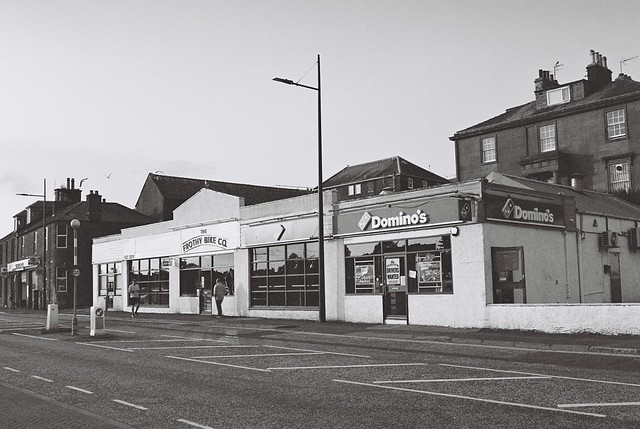
Viewfinder
Cost cutting very evident here. It’s usable but that’s about all I can say. The finder is small & dark as a pentamirror but worse than the similar afflicted F55.
Display of information is awful. It has a side display but shows next to nought. In auto mode it just shows focus lock, flash status and if you’ve pressed the Auto Exposure lock (AEL). In manual you get a +,- and ● to show if exposure over, under or on target.
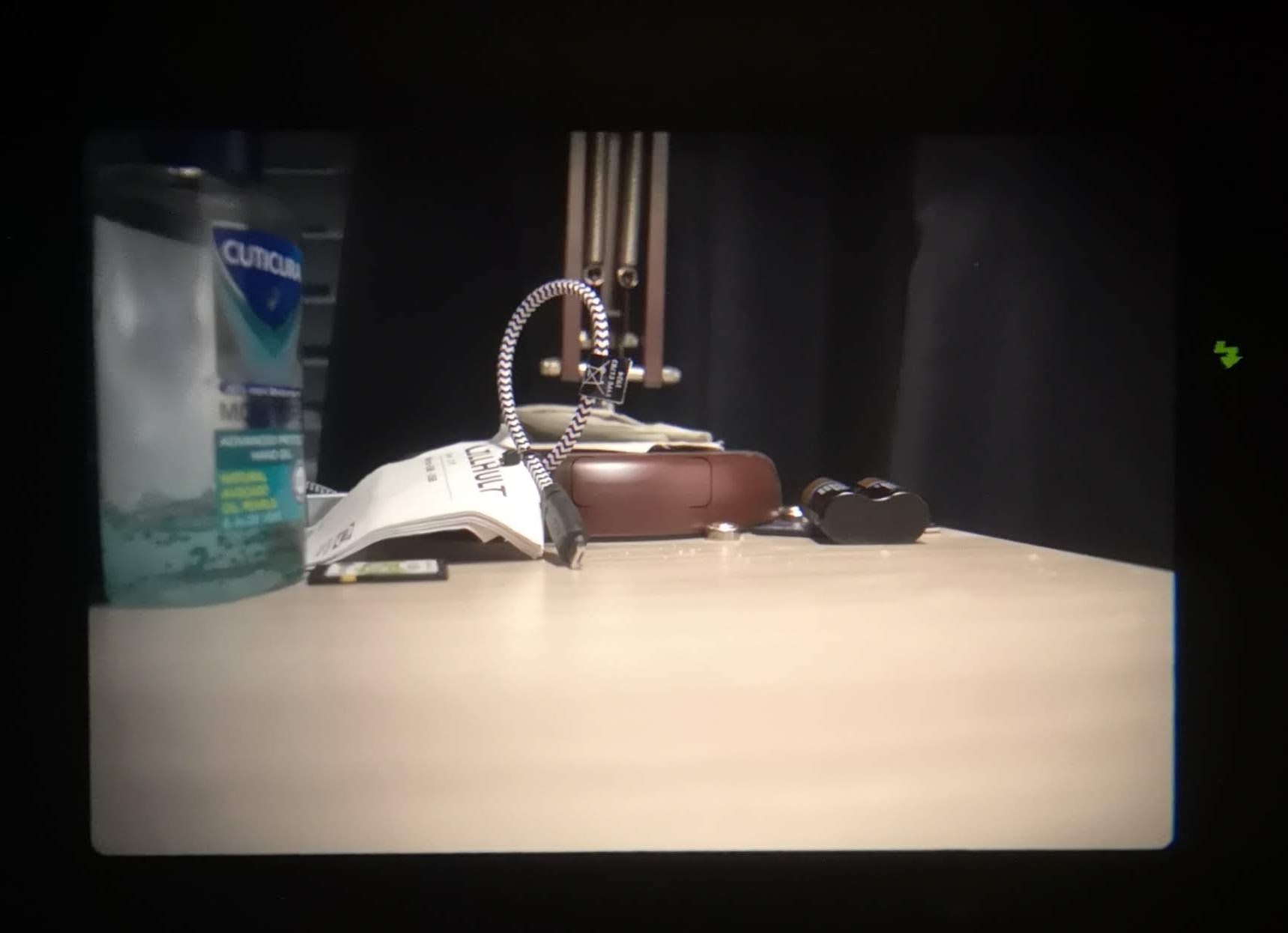
They’re displayed brightly but compared to LED panels in the rivals, this is just very basic.
Optional dioptre viewfinder covers were available
Modes and options
The camera has switchable modes. You get PSAM functions plus 5 other scenic modes. The default standard program is represented by a smiley face (I kid you not). You need to cycle through the 5 scenic modes to get to aperture priority (Av), Shutter Priority (Tv) and metered manual (M). Those 5 modes are Portrait, landscape, sports, macro and night mode.
The camera has a built in date imprint setting. But this lacks the usual databack panel on the rear so you need to set via the standard LCD.

You get a choice of timer, drive modes and an exposure bracketing option but no EV compensation !!. Grand I’ll do that via manual you say. But the metering does not display how far you are out.
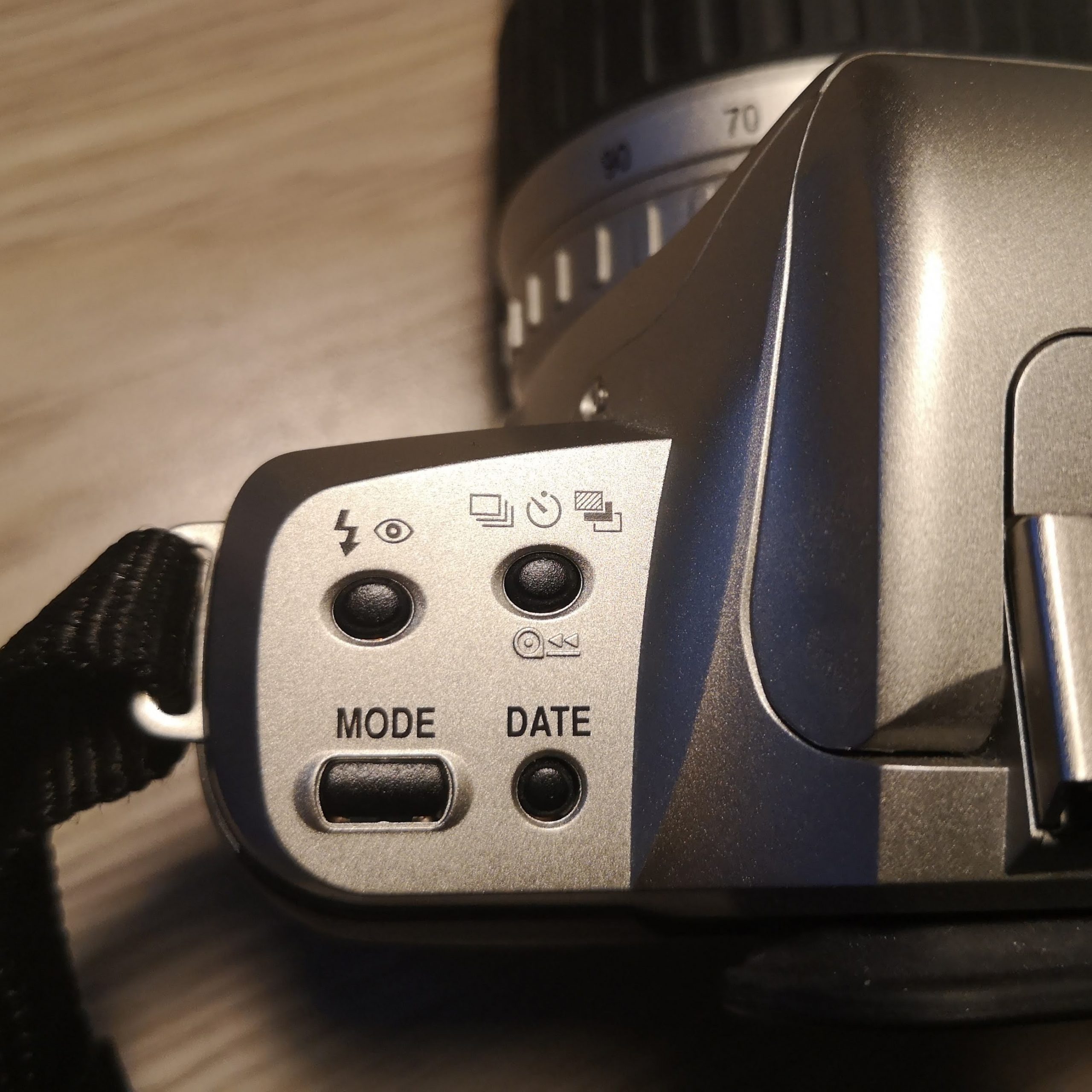
Meanwhile the rivals have dedicated EV adjust buttons.
Power, Drive & Flash
2 CR2 needed for the camera. Advance is a pedestrian 1 fps (not that the rivals at 1.5fps are that much faster. Despite being a budge model there is the FG (4xAA) battery pack available. That can be source on eBay but you’ll likely pay more than you do for the camera
Built in TTL metered flash unit is GN11 @100ISO/m. Sync speed is 1/100. It offers trailing curtain sync (rear curtain) at up to 1/60 in certain modes. It’s fairly limited beyond the usual on/off and red eye features. TTL ill work with external dedicated speedlights. And you can use the built in flash with the AF500FTZ speedlight if connected by the optional F5P cord.
The flash auto opens if left at default setting as needed. Alternatively you can bring up by pressing a button
In use
Whilst I didn’t enjoy the viewfinder and lack of EV compensation, it works well enough. Its not as speedy to focus as some pricier rivals like the Nikon F75 or Canon EOS 300X, but is about the same as my F55. It’s reasonably accurate.
Manual mode requires you press a button on the side to switch to adjusting to the aperture. Like many late Pentax models the aperture need either to be locked at A or set to the smallest value on the lens with the camera adjusting things. That’s except with more decent models where you might need to adjust the aperture manual on vintage lenses. Not that you need to worry about that here.
AF and wind are not the quietest but again what you’d expect at this price point.
For simple snaps it was fine but trying to compensate forces you into manual mode which involves various button pressing.
It’s always hard to comment on results as the optics are as much to play. In undemanding conditions exposure was pretty spot on. And I was impressed with the TTL built in flash.

MZ-60 Price at launch and price today
On eBay it’s hard to see ones sold without the lenses. That’s likely as whilst Pentax has carved out a niche in the Digital Era, that niche is small. Users who bought this are likely to have upgraded to budget Canon or Nikon dSLR or gone to compacts/smartphone. auctions for boy with a kit lens go for between £20-30 although I saw a recent one sold for just £14. I paid £26 and mines came with some working batteries. I suppose on the plus point I now own a KAF lens for my MZ-5.
The SMC Pentax-FA 28-90mm F3.5-5.6 seems to be the commonest kit lens (mines came with it). It’s a mediocre plastic kit lens (user rating of 6.6/10 on Pentax forums). I’ve seen one sold with a SMC Pentax-FA J 28-80mm F3.5-5.6 AL (rate just 6/10 by users but higher tech scores on Pentax Forum). that seems common in the UK with a second longer focal length zoom.
Historic prices are hard to track down. The best i could find were listing in the Jan 2005 edition of Popular Photography (so actually late 2004 prices). Tristate cameras were selling this for $119USD before tax body only and with the 28-80mm lens just $60 more. I’d have paid a bit more for the ZX-L (MZ-6) which has a standard KAF mount (notably not KAF2 so still knackered with ultrasonic lenses) which cost $40USD more for body and in kit.

Final Verdict on the Pentax MZ-60
If launched in the early 90’s it would have been a reasonable entry level rival to the likes of the Canon EOS 1000 series or the Nikon F-401 series.
But this launched a decade later. And frankly is pretty piss poor for the budget class being out stripped by some margin by Nikon and Canon’s offerings. A single AF point was okay in 1992 but by 2002 woeful. A 2 segment meter was laughable even by 1992 standards. Let alone 2002. The Nikons will mount and be able to use legacy manual focus lenses unmetered and the EOS 1000 and later bodies can use manual focus lens like M42 mount ones with metering via adaptors.
Even if you can live with those a lack of EV compensation forcing you to use fiddly manual mode. I mean it take simple enough photos and you can change the lens making it marginally more useful but bulkier than a zoom compact. It is light but so are it’s rivals.
In fairness this never aimed at your average amateur photographer. The average Joe was the target audience. Someone who might wanna step up from their compact and would just use for snap shots.
But given I bought the the 1996 MZ-5 for 99p which offers KAF2 support (no issues with manual or ultrasonics), 3 AF points and a 6 segment meter. Oh and a dedicated exposure comp dial amongst a host of others perks. I really can’t recommend this and it’s sad to see this as one of the last film SLRs bearing the Pentax name.
Alternatives to the MZ-60
in a short answer pretty much any other Pentax AF SLR will be better. even the aging heavy 1988 SF10 (reviewed here on Simon Hawkett’s Photo Blog) which pretty much is a slower heavier version of the MZ-60 spec wise but can offer better lens support, I would avoid the MZ-30 as only marginally better lens support. Mid to high end MZ bodies offer more and can be sourced cheaply. Like my MZ-5 although I’d go for a MZ-5n in hindsight as it adds DoF preview.
Both the Nikon F55 and the Canon EOS 3000 series offer more but raise their own dilemma as their models up (the F75 and the EOS 300x) cost just a bit more and bring more to the table still.
MZ-60 Resources & Other reviews
Mike Butkus’s site has the manual. Ricoh (owner of Pentax) still have camera information their site. Simon Hawkett has also reviewed the MZ-60 .

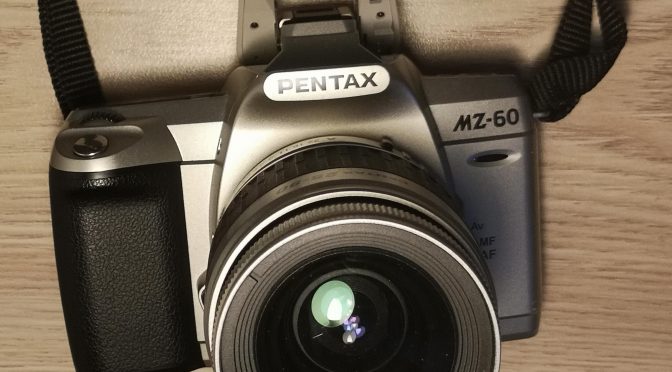
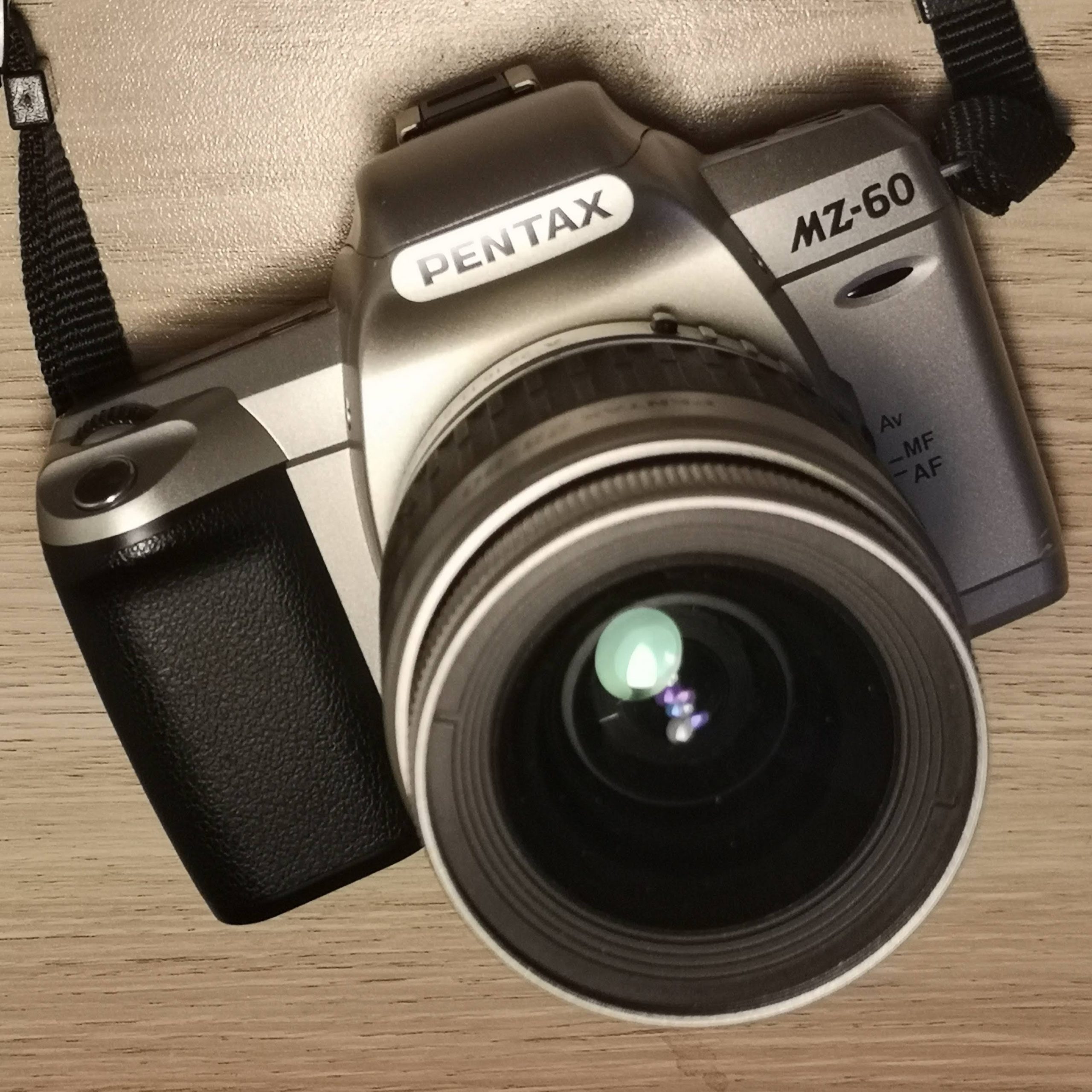

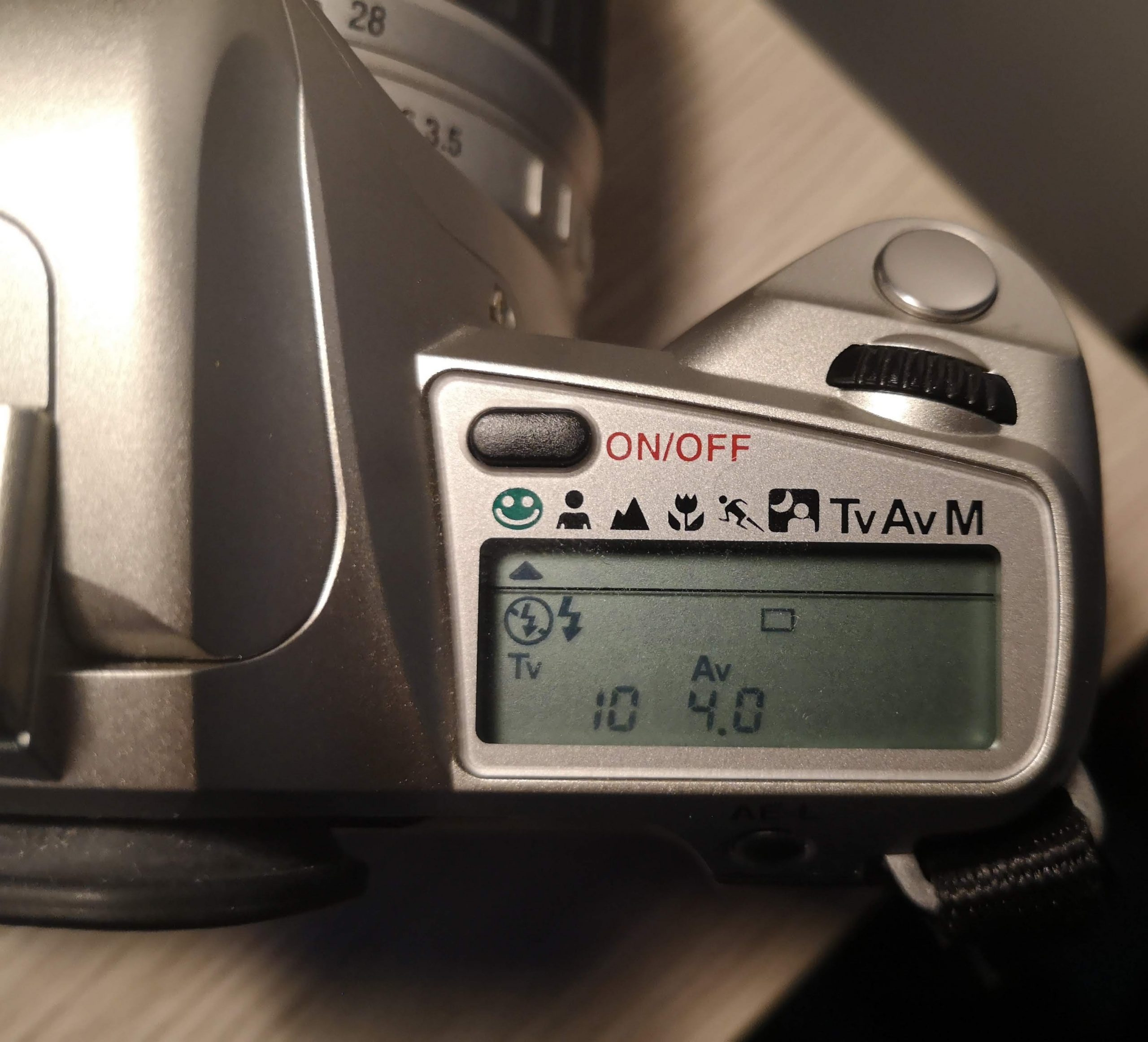
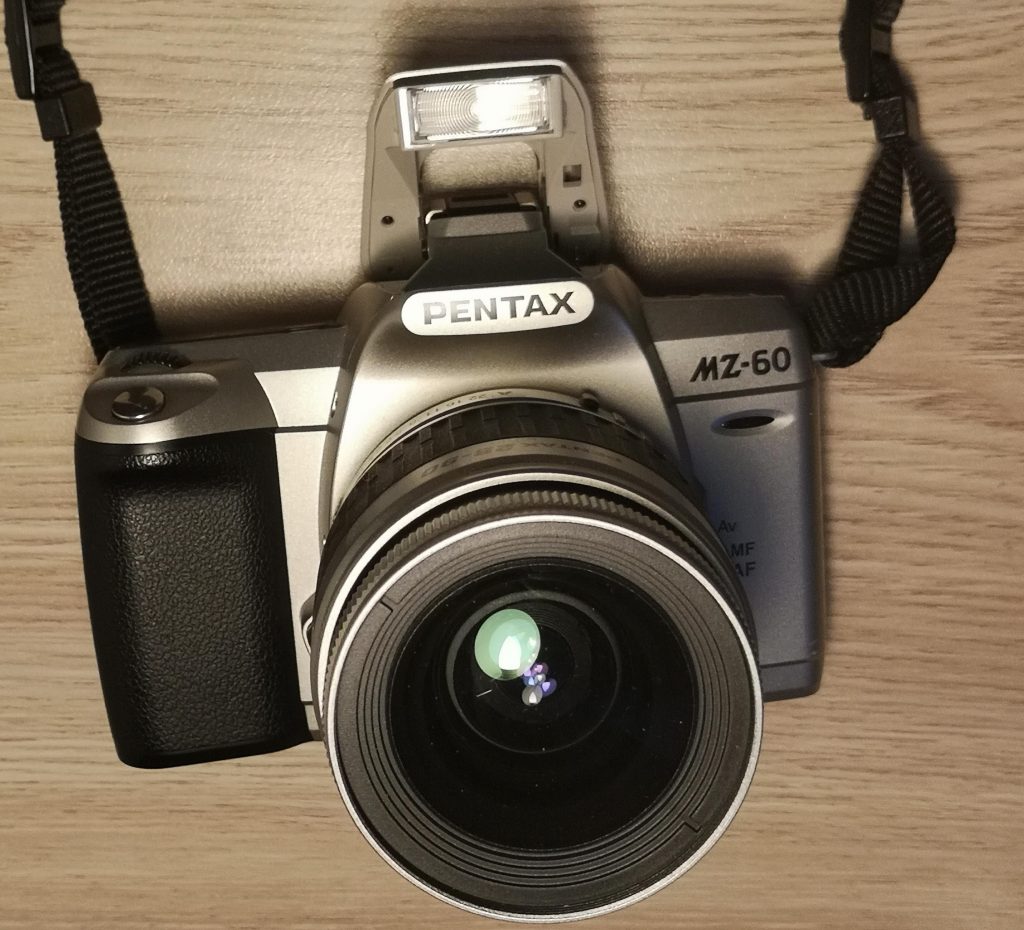
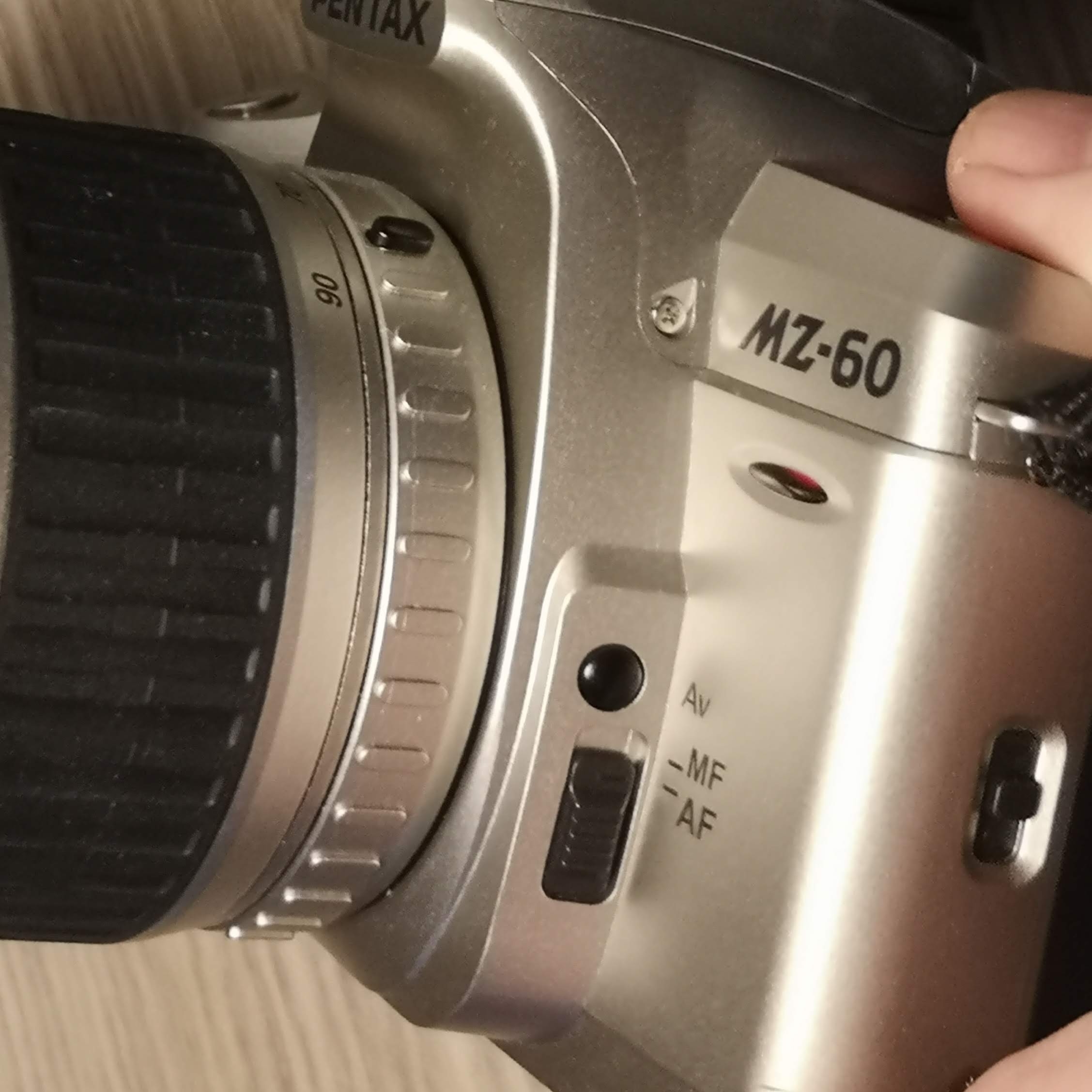
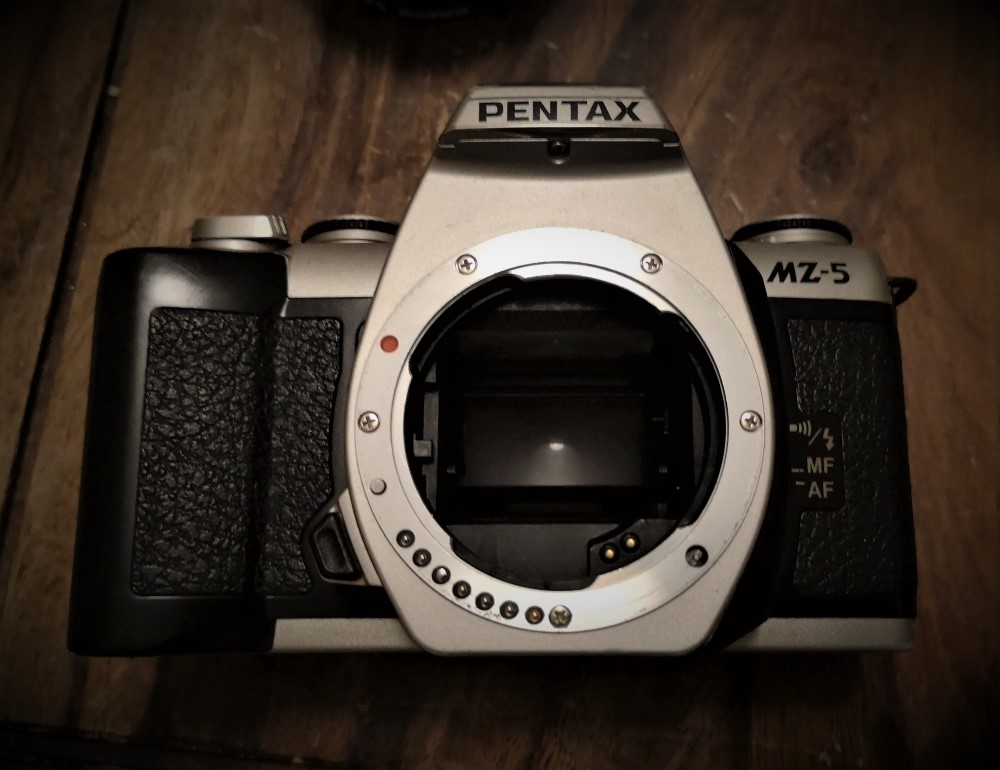
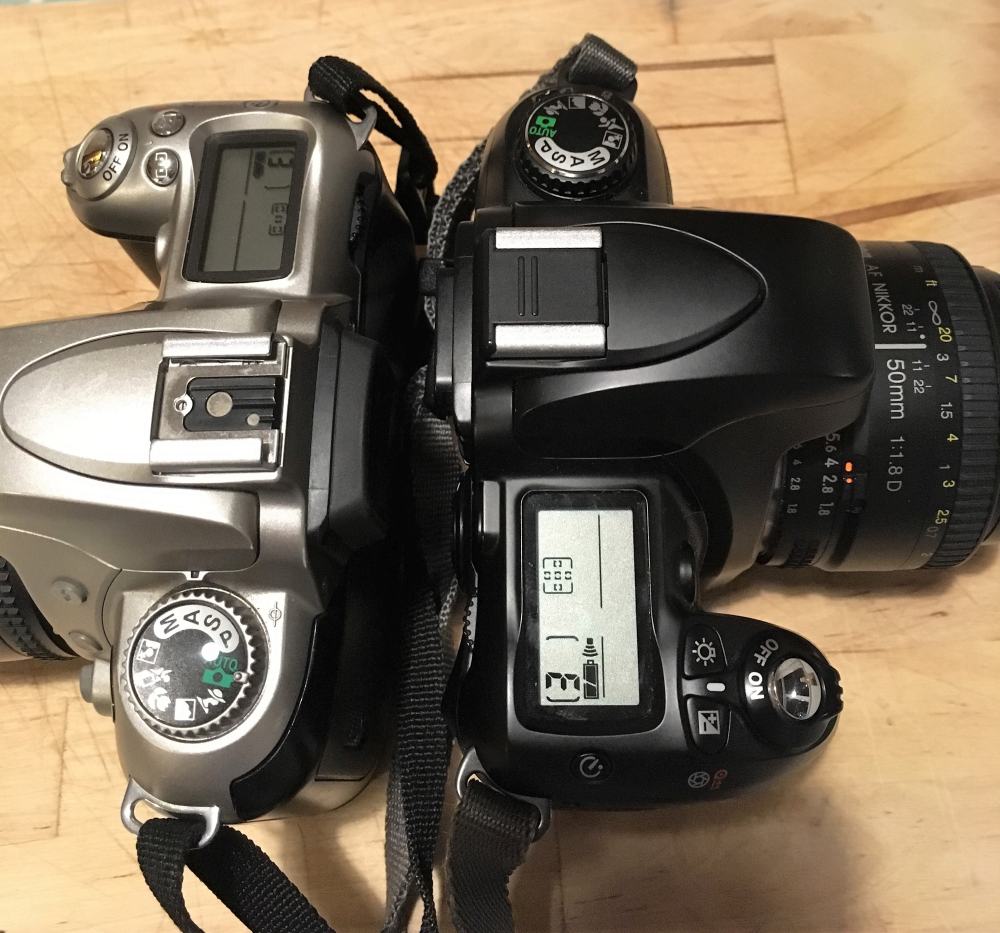
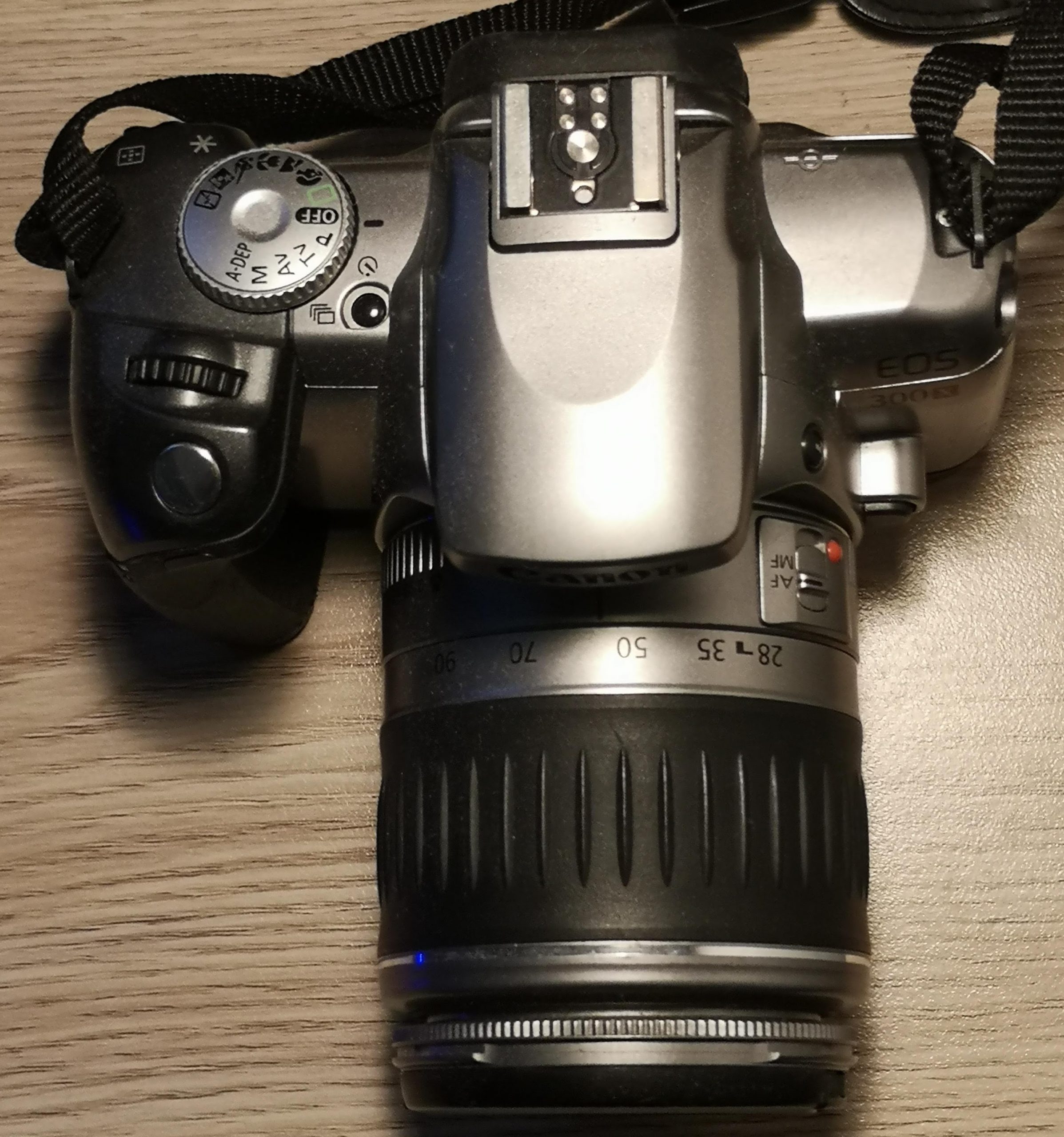
I acquired an MZ-50 a few years ago with what i thought was a great 18-55mm zoom, such a wide angle at low cost!! Turns out that it is the lens from the digital camera. So on the wide angle setting there is real even Lomo style vignetting. Once one accepts the feature it is actually quite useable, and interesting. A more normal 28-80 lens was acquired later, and at a very reasonable price. I agree with not being able to use older non auto lens though. Having a K1000 with a fixed 50mm lens i thought it would work. No go. One useful feature is the ability to change the film speed. By default the ISO is set from the DX code, but is easy to over ride. Very useful for well out dated films of 100 asa circa 1996 which come out great at 20asa. The over ride options goes very low.
I have since acquired a Samsung GL1, a Pentax DSLR clone and yest it does take the old K lens, and M42 with the adaptor I acquired.
Used as an automatic and not expecting too much from the lens it works pretty well. Zoom lens might only show their low cost with 20 x 16 enlargements and fine grain film. Kentmere 100 and 400 look pretty go on A4.
Of course I only really bought it to go with my MZ motorcycle!
Just bought a brand new boxed MZ60 off ebay, didnt manage your pound challenge but got it for £5 plus £5 delivery, cant believe no one else bid on it. Yes I know it has its faults but £5 for a brand new camera! Its going to be added to my collection and used regularly, collecting cameras is addictive
oh forgot to add it came with the 28-90mm kit lens too